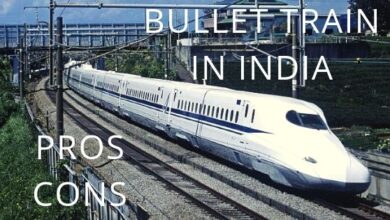Job Vs Entrepreneurship – GD/WAT Topic with Solution
Which is better job or business?
A job can be any piece of work that is performed in exchange for an agreed price and similar benefits whereas entrepreneurship is creating new ventures keeping in mind the risks and difficulties and thinking out of the box in order to make a profit. One of the biggest differences between entrepreneurship and job is having more control. Let’s explore more about Job Vs Entrepreneurship.

QUOTES
“You have to see failure as the beginning and the middle, but never entertain it as an end.” – Jessica Herrin, founder, and CEO of Stella & Dot
“Entrepreneurship is living a few years of your life like most people won’t so you can spend the rest of your life like most people can’t.” – Warren G. Tracy’s student
| Job | Entrepreneurship | |
|---|---|---|
| Definition | Employment in which an individual works for an employer and receives a fixed salary or wages in return for their services. | The act of creating, designing, and managing a business or venture, taking on financial risks in the hope of making a profit. |
| Control | Limited control over decision-making and business operations, as they typically follow the directives of the employer. | Full control over all aspects of the business, including decision-making, operations, and strategic planning. |
| Income | Fixed salary or wages, usually determined by the employer, with potential for periodic raises or bonuses. | Income generated from the success and growth of the business, which can vary significantly and is directly proportional to its profitability. |
| Risk | Relatively lower risk as employees have a steady income and limited financial liability. | Higher risk as entrepreneurs invest their own resources, including time and money, and bear full responsibility for the success or failure of the business. |
| Job Security | Dependent on the stability of the employer and market conditions. Employment can be terminated by the employer. | Subject to market fluctuations and economic conditions, with the potential for failure and closure of the business. |
| Flexibility | Often subject to fixed working hours and limited flexibility in terms of work schedule and location. | Greater flexibility in terms of work schedule and location, allowing entrepreneurs to set their own hours and work from anywhere. |
| Skills Required | Specialization in a particular field or industry, with expertise in a specific area. | A diverse skill set encompassing various areas, including business management, finance, marketing, and leadership. |
| Growth Potential | Limited opportunities for advancement, with career progression often dependent on promotions within the organization. | Unlimited growth potential, with the ability to expand the business, hire employees, and explore new opportunities and markets. |
| Independence | Relatively lower level of independence and autonomy, as employees need to adhere to the policies and guidelines set by the employer. | High level of independence and autonomy, as entrepreneurs have the freedom to make decisions and shape the direction of the business. |
HISTORY
In India, the concept started catching up with the advent of IT and when Narayan Murthy became the buzz word all around. While the success of Bill Gates and Steve Jobs in setting the US economy into a startup mode, Indians were quite shocked to learn about Sabeer Bhatia(Indian) who used to sell Hotmail to Microsoft.
This proved to be the turning point for Indian entrepreneurship’s ambition. With the time, India also had its own shares of success in Flipkart, Snapdeal, etc. Starting off a website to sell became the buzz word for all and everyone wanted to join the bandwagon.
Few successful examples:
1. Bhavish Aggarwal
Founder- Ola Cabs
This young man has revolutionized the cab service in India by connecting it with the smartphones and GPS system.
2. Deepinder Goyal and Pankaj Chaddah
Founders- Zomato
The best part is the Mobile App with an excellent user interface, which not only allows to locate food with GPS but also provides easy paying facilities.
3. Byju Raveendra
Founder- Byju’s
It gave the nation the concept of online education Byju’s App helped lakhs of students who struggled with science, mathematics or cracking the toughest exams like JEE, NEET & UPSC.
How is entrepreneurship different from employment?
According to a study, only 5% of Indian adults establish their own business
Also, around 76 percent of the young workforce would like to work for a startup, whereas around 69 percent would prefer to work for an enterprise or a privately managed company.
EASE OF DOING BUSINESS
- According to the World Bank’s Ease of Doing Business 2020 report, India jumps to the 63rd position.
- It indicates that there is a steady improvement in business practices and regulations across the country. It is not only boosting India’s business environment but also encouraging upcoming startups.
- According to a report by Business Today (India). India has more than 48 million small businesses, double the number of small companies in the U.S. (around 23 million).
Breakdowns among the top industries are:
- Retail (except for motor vehicles): 40%
- Clothing manufacturing sector: 8.75%
- Food & Beverage sector: 7%
- Services sector: 6.2%
- Auto (sales, maintenance, and repairs): 3.6%
- Furniture: 3.2%
Effect of Covid-19 on jobs
In the USA, 3.3 million Americans file for unemployment as the nation tries to control the Covid-19 pandemic.
Why job is better than business?
Obviously, a huge advantage of employment is guaranteed income. A fixed amount of money is deposited on a monthly basis into bank accounts means financial security for the employee and their family.
Typically, with employment, one will have colleagues and even other people within his/her team. This means that one can bounce ideas off of others, share things like workloads and responsibilities, complement each other’s skillsets, and moreover will have people with whom he/she can socialize.
Why business is better than job?
Entrepreneurs can totally change the way we live and work. If successful, their revolutions can improve society’s standard of living.
They also make a significant contribution to national income.
Job Vs Entrepreneurship – Comparison
The certainty of paycheck vs. none
- Entrepreneurship is not really for those who cannot survive without a paycheck. The entrepreneurs may make nothing for months, sometimes for years.
- Jobs pay immediately. It is usually fixed and certain.
Incremental vs. explosive
- Entrepreneurship is not easy. But if worked through patience, it can lead to explosive growth. The explosive growth can give name and fame.
- Jobs are incremental over time. starting at the junior level one can move on to become a senior. Salary also increases consistently with the position.
Passion vs. consistent track record
- Starting own venture and following one’s dream is passion. one cannot think about consistency.
- Job is about meeting deadlines consistently. Employees have to consistently meet expectations and in turn, get rewarded with promotion.
Creation vs. continuation
- Entrepreneurship is about ideas, creations and developing something new. It is also about solving problems in a unique way and targeting opportunities.
- Job is all about the continuation of the same work often done in a much better way for survival.
Whole day vs. 9-6
- Entrepreneurs usually lose track of time. They even work more than twelve hours a day.
- People in the job often have fixed working hours and also find enough time for their families.
Risk
- Entrepreneurship is risky. One could lose all money if not planned properly.
- Jobs have relatively low risks. Even if you lose your job, you will not lose money. Also, you can get similar jobs.
CONCLUSION
Both entrepreneurs and employees are significant in this world. It all depends on one’s goals and personality. Both have the potential to be successful in their own way and need not label as either an employee or an entrepreneur to be happy.
Author: Priyanka Mahala
Must Explore




